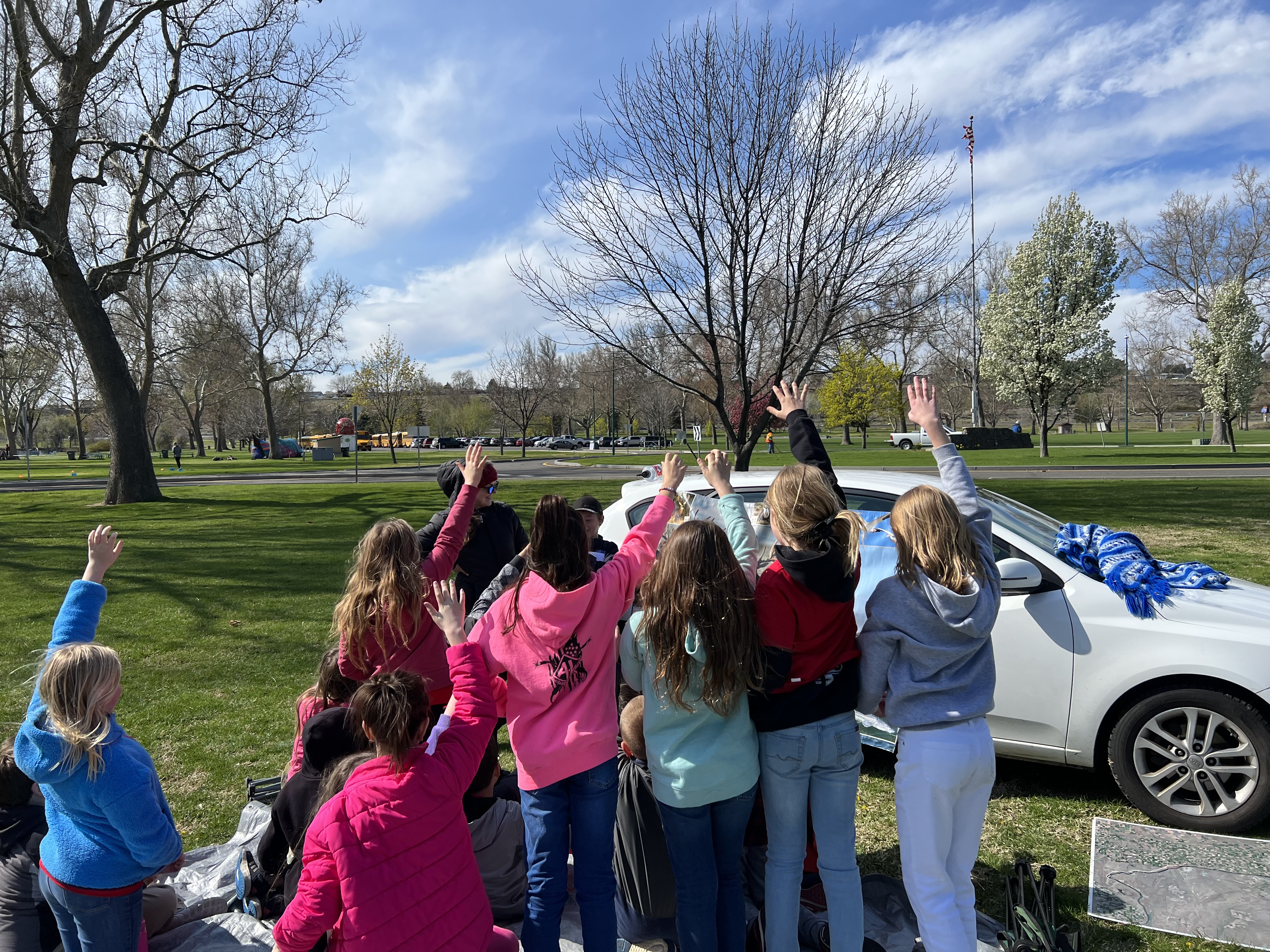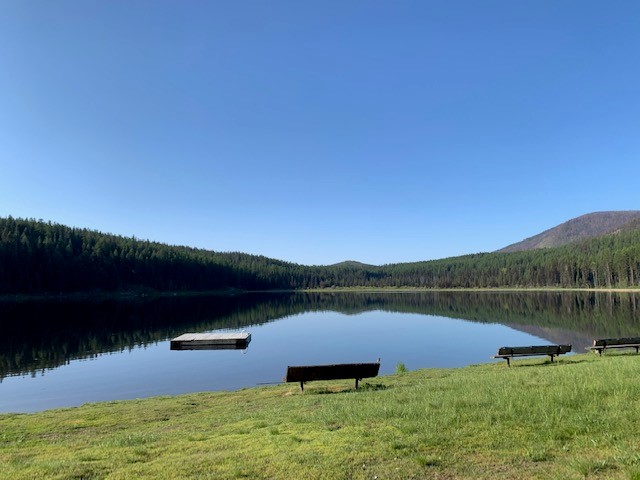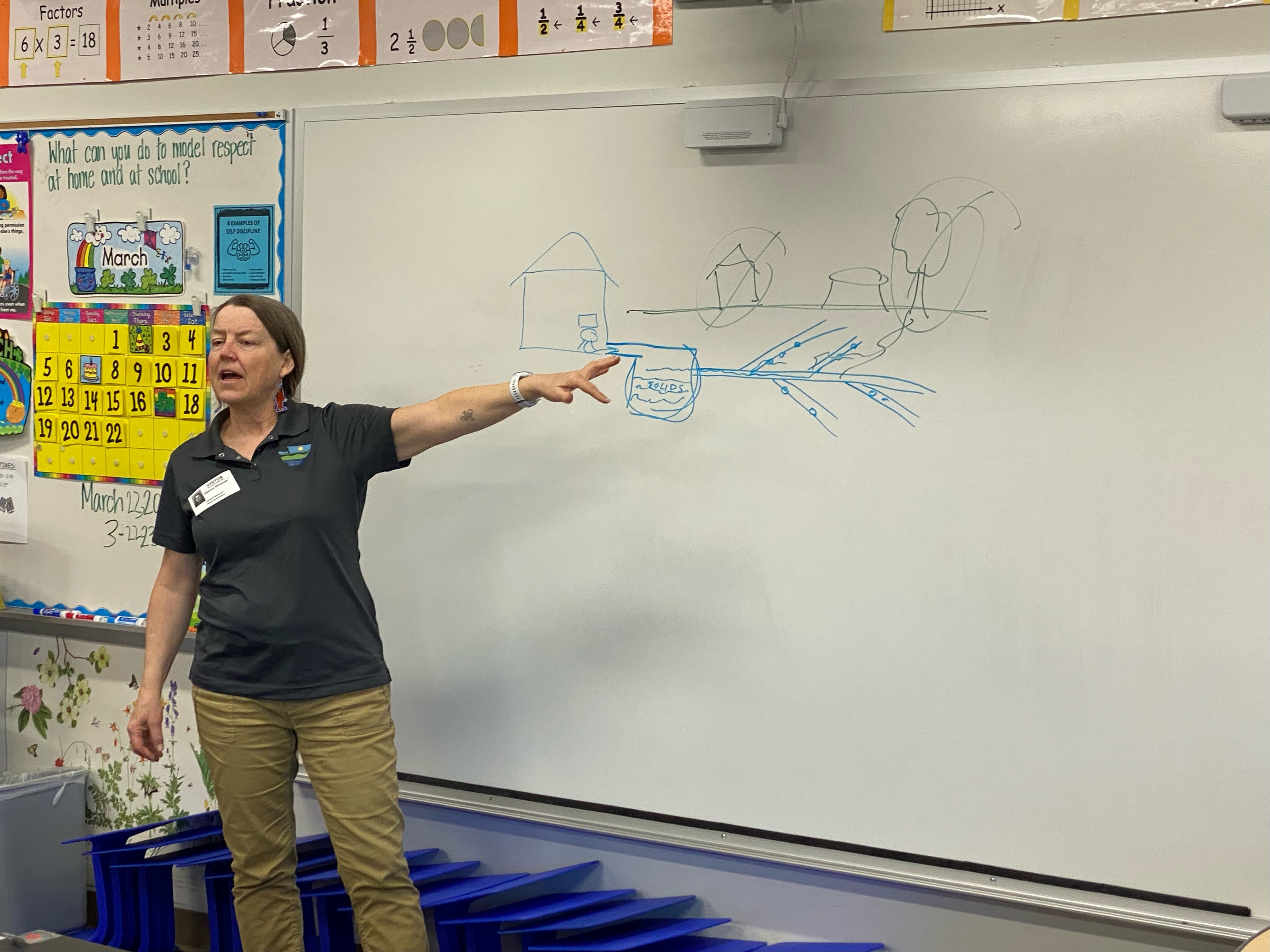Trigger warning: Reference to acts of war.
As high school graduations wrapped up across the state over this last month, I reflected on my year teaching students about the Hanford Site’s nuclear cleanup.
Ginger Wireman calling for volunteer readers at Benton County Salmon Summit in April.
In the 2022-2023 academic year, our Nuclear Waste Program staff taught nearly 1,200 students, along with their teachers, parents, and chaperons. We supported STEM nights, Benton County Salmon Summit, the Return to the River festival in Walla Walla, and Earth Day at the Hanford Reach Museum. I also presented in many individual classrooms.
Tabling at fairs is fun, and we always have interested parents or students ask great questions that keep us on our toes. In some cases, a parent works at Hanford and uses our displays to tell their family more about their job.
While we have no way of measuring the exact long-term impact of this scattered science education, our Nuclear Waste Program knows investing in the community is important. We are especially interested in reaching new and diverse audiences.
Sometimes one outreach opportunity really stands out. This year, that was the Oroville 6th grade camp at Camp Tokinawee on Lost Lake in the Colville National Forest.
I admit, I was wondering about my choice to support this rural, low-income district, on the very long but beautiful drive. During the last 13 miles on dirt roads I worried, “Will this be worth a day’s travel and state resources?”
I arrived in time for dinner and had a chance to learn about the teachers and school counselor, and witnessed a warm camaraderie between teachers and support staff. One teacher had some knowledge of Hanford and expressed appreciation that I’d driven so far to support their students. After dinner, there were three more learning activities. I pitched in on a macrame activity where the adult leader was relieved to have another adult to work with the students.
Lost Lake in the morning. 
The next morning, I followed the kids’ early exercise regime, watching them run to the opposite side of the lake. The quiet morning was punctuated with student laughter as they raced and encouraged one another. The only other sound was from loons.
I spent the break before breakfast talking to the counselors, high school juniors and seniors, about their post-graduation goals. I suggested they look at skilled trades if they weren’t sure about attending college. It turned out, most of the counselors participate in Upward Bound, a federal program that serves high school students from low-income families, and families in which neither parent holds a bachelor's degree. Most were interested in STEM careers. A few young ladies will be visiting New York University this summer through Upward Bound!
After breakfast it was go time and I finished prepping for my three sessions. I started each lesson with a map of Washington, showing where the Hanford Site is located, and how different the landscape is from the Okanogan Valley.
I delivered an overview of Hanford history and cleanup. When I told them plutonium from Hanford was used in the bomb dropped on Nagasaki a boy sitting at the front raised his hand and asked if it was Fat Man or Little Boy. I was impressed to find a sixth grader with that knowledge of World War II history (it was Fat Man).
I then turned to my trusty groundwater simulator and taught about groundwater contamination, and what we’re doing at Hanford to remove chemicals and radioactive elements through pump and treat systems. I also discussed wellhead protection and septic system maintenance.
Ginger Wireman talking about septic systems at William Wiley Elementary in Tri-Cities earlier this year.
More than half the students live outside town. In fact, the Oroville School District serves an area roughly the size of Rhode Island! One student shared that she had unfortunately experienced septic system failure at home. Another asked what to do if they lived in a rented property. I encouraged them to have their parents check with the landlord about the last time the tank was pumped. The standard recommendation is to pump the tank every three to five years depending on the household size.
I finished by telling them there are Hanford cleanup decisions yet to be made. I encouraged them to keep their ears out for Hanford news and explore careers at Hanford since cleanup will continue at least 40 more years.
The overall response from students and teachers was a sense of amazement. Most had never heard of Hanford and had no idea of Washington State’s important role in World War II and the Cold War.
On the drive home, I reflected on the tight knit community of teachers, administrators, coaches and other adults working to ensure Oroville students are successful.
I thought back to the teachers who invited me to their classrooms, the enthusiastic volunteer readers at Salmon Summit, and the students who asked smart questions. I know not every kid will remember what I taught them.
But, as some of the Oroville high schoolers helped load my water model into the car, they were planning a summer road trip to B-Reactor. I consider that a success.


